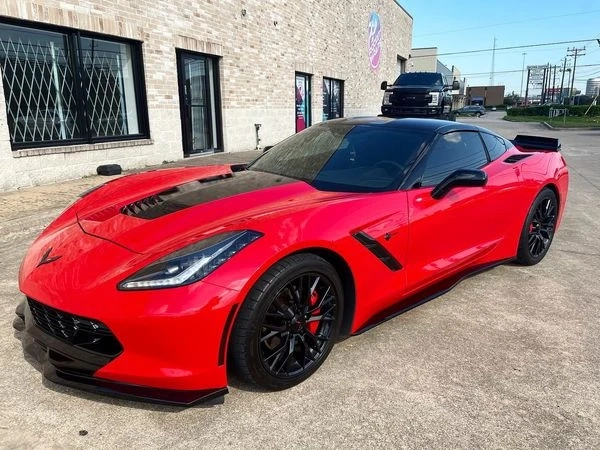Vehicle wraps have revolutionized the way we customize and protect our cars. Whether you're looking to change the color of your vehicle, advertise your business, or protect the original paint, vehicle wraps offer a versatile and cost-effective solution. In this comprehensive guide, we'll explore everything you need to know about vehicle wraps, including the benefits, types, application process, maintenance, and frequently asked questions.
Understanding Vehicle Wraps
What Are Vehicle Wraps?
A vehicle wrap is a large vinyl decal or graphic that is applied directly over the paint of a vehicle. This allows you to change the vehicle’s appearance without the need for a permanent paint job. Vehicle wraps can cover the entire vehicle or just parts of it, such as the hood, roof, or doors.
Benefits of Vehicle Wraps
Aesthetic Versatility: Vehicle wraps come in a vast array of colors, finishes, and designs, allowing for endless customization options.Protection: They protect the original paint from UV rays, minor abrasions, and weather elements.Cost-Effective: Wrapping a vehicle is generally less expensive than a full paint job and can be removed if you decide to revert to the original look.Advertising: Custom car wraps are a powerful advertising tool, transforming your vehicle into a moving billboard that can increase brand visibility.Types of Vehicle Wraps
Full Wraps
A full wrap covers the entire surface of the vehicle, including bumpers, mirrors, and door handles. This type of wrap offers the most comprehensive change and protection for your vehicle.
Partial Wraps
Partial wraps cover only specific parts of the vehicle, such as the hood, roof, or sides. This is a cost-effective way to achieve a new look or highlight certain areas without the expense of a full wrap.
Custom Car Wraps
Custom car wraps are designed to meet specific requirements, whether it’s a unique color, pattern, or graphic design. These wraps are perfect for personalizing your vehicle or creating a distinctive look for commercial purposes.
The Vehicle Wrap Application Process
Design and Planning
The first step in the vehicle wrap process is the design phase. This involves working with a graphic designer to create the desired look. Measurements of the vehicle are taken to ensure the design fits perfectly.
Surface Preparation
Before the wrap is applied, the vehicle must be thoroughly cleaned to remove any dirt, wax, or grease. Any imperfections on the surface, such as scratches or dents, should be repaired to ensure a smooth application.
Application
The vinyl wrap is carefully applied to the vehicle’s surface. This process requires precision to ensure there are no bubbles or wrinkles. Professional installers use specialized tools and techniques to stretch and adhere the wrap to the contours of the vehicle.
Finishing Touches
Once the wrap is applied, the edges are trimmed, and any necessary adjustments are made. The vehicle is then inspected to ensure a flawless finish.
Maintaining Your Vehicle Wrap
Regular Washing
To keep your vehicle wrap looking its best, wash it regularly with a mild detergent and water. Avoid using abrasive brushes or sponges that could damage the vinyl. Hand washing is recommended over automatic car washes.
Avoid Harsh Chemicals
Stay away from harsh chemicals, solvents, or petroleum-based products, as they can deteriorate the vinyl wrap. Always use products specifically designed for vehicle wraps.
Protect from Sun Exposure
Whenever possible, park your wrapped vehicle in a garage or shaded area to protect it from prolonged UV exposure. This will help prevent fading and extend the life of the wrap.
Deal with Contaminants Promptly
Remove bird droppings, tree sap, and other contaminants as soon as possible. These substances can damage the vinyl if left untreated.
Common Myths About Vehicle Wraps
Vehicle Wraps Damage Paint
Contrary to popular belief, vehicle wraps do not damage the paint. In fact, they protect it from minor scratches and UV rays. When removed correctly, the wrap leaves the original paint intact.
Vehicle Wraps Are Permanent
Vehicle wraps are not permanent and can be removed if desired. This makes them a great option for leased vehicles or temporary designs.
Wraps Are Only for Advertising
While wraps are an excellent advertising tool, they are also popular for personal customization. Custom car wraps allow for a unique, personalized look without a permanent commitment.
Conclusion
Vehicle wraps offer a flexible and cost-effective way to transform and protect your vehicle. Whether you're looking to advertise your business, change the color of your car, or simply protect the original paint, vehicle wraps provide an ideal solution. With proper care and maintenance, a high-quality wrap can last for years, keeping your vehicle looking its best.
FAQs
How long does a vehicle wrap last?
A well-maintained vehicle wrap can last between 5 to 7 years. Factors such as exposure to the elements and frequency of washing can affect its lifespan.
Can I wrap a leased vehicle?
Yes, vehicle wraps are an excellent option for leased vehicles because they are removable and do not damage the original paint.
How much does a vehicle wrap cost?
The cost of a vehicle wrap varies depending on the size of the vehicle, the complexity of the design, and whether it is a full or partial wrap. On average, a full wrap can range from $2,500 to $5,000.
Can I wash my wrapped vehicle in an automatic car wash?
It is best to avoid automatic car washes as they can be too harsh on the vinyl wrap. Hand washing is recommended to ensure the longevity of the wrap.
What should I do if the wrap starts to peel?
If you notice the wrap peeling, take your vehicle to a professional installer for repairs. Prompt attention can prevent further damage and prolong the life of the wrap.
By understanding the benefits and proper care of vehicle wraps, you can make an informed decision and keep your vehicle looking stylish and protected for years to come.



